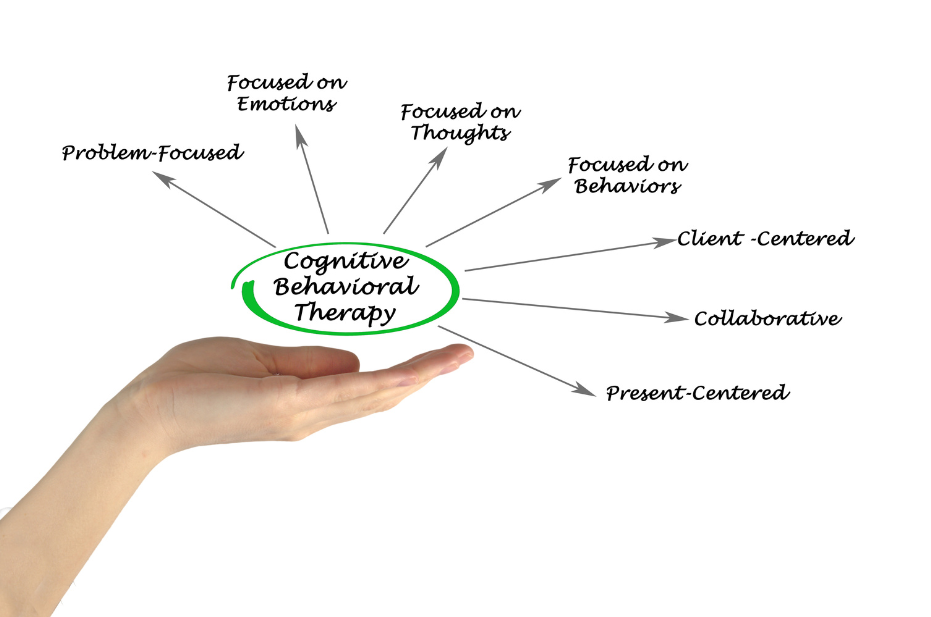- Posted on
- Jaswani T
- No Comments
Introduction
In the domain of mental health, the meaning of psychological mediations like cognitive-behavioral therapy (CBT) couldn’t possibly be more significant. This type of therapy, established in psychology, can make all the difference in tending to different mental health challenges, from anxiety and depression to childhood trauma. In this blog, we’ll look at how hypnotherapy and cognitive behavioral therapy (CBT) can help you feel better and boost your confidence.
Understanding Cognitive Behavioral Therapy
A well-known type of psychotherapy that focuses on identifying and changing negative thought and behavior patterns is cognitive-behavioral therapy. This helpful methodology is directed by an expert professional, frequently referred to as a counselor, therapist, psychologist, or psychotherapist. These sessions, driven by a skilled consultant, intend to give people powerful survival techniques to oversee mental problems like anxiety and depression.
A well-known type of psychotherapy that focuses on identifying and changing negative thought and behavior patterns is cognitive-behavioral therapy. This helpful methodology is directed by an expert professional, frequently referred to as a counselor, therapist, psychologist, or psychotherapist. These sessions, driven by a skilled consultant, intend to give people powerful survival techniques to oversee mental problems like anxiety and depression.
Hypnotherapy and its Role
Incorporating hypnotherapy into the sessions can improve the effectiveness of cognitive-behavioral therapy (CBT). A hypnotherapist, specializing in mental health, collaborates with the psychologist to dig further into the subconscious mind. Individuals can examine and address underlying issues that may contribute to their lack of confidence through this collaboration. Through a progression of professionally directed hypnotherapy sessions, one can acquire significant experiences in their thoughts and behaviors.
Addressing Childhood Trauma
Childhood trauma frequently leaves enduring engravings on our mental health, affecting confidence levels in adulthood. A psychologist for depression and anxiety can use CBT and hypnotherapy strategies to help people with exploring through the effects of childhood trauma. These sessions engage people to reevaluate negative beliefs, cultivating a more certain positive mental self-image.
Anxiety and Depression Management
CBT, when directed by expert psychologists for depression and anxiety, proves to be an important tool in dealing with these mental health challenges. By recognizing and challenging twisted thought patterns, people can break the pattern of negative thinking that frequently goes with anxiety and depression. Regular sessions with a counselor or psychotherapist can offer continuous help and techniques to adapt to these conditions.
Consulting a Professional
While looking for cognitive-behavioral therapy or hypnotherapy, counseling a certified and experienced professional is essential. A reputable hypnotherapist or counseling psychologist can tailor sessions to address individual issues, ensuring a customized way to deal with supporting certainty and addressing mental health concerns.
FAQs
Q1: How does cognitive-behavioral therapy differ from traditional counseling?
A1: While traditional counseling may focus on discussing emotions and experiences, CBT actively targets negative thought patterns and behaviors. It provides practical tools to change these patterns, promoting positive mental health.
Q2: What role does a hypnotherapist play in boosting confidence?
A2: A hypnotherapist collaborates with a counseling psychologist to explore the subconscious mind, addressing underlying issues contributing to low confidence. This combination can lead to a more profound and lasting transformation.
A3: Yes, CBT is widely recognized as an effective approach for managing anxiety and depression. It equips individuals with tools to challenge and change negative thought patterns, promoting a healthier mental state.
Q4: How often should one attend CBT or hypnotherapy sessions?
A4: The frequency of sessions varies based on individual needs. A professional counselor or hypnotherapist will discuss a suitable session schedule during the initial consultation.
In conclusion, cognitive-behavioral therapy, complemented by hypnotherapy, is a strong combination for boosting confidence and improving overall mental well-being. Looking for the guidance of a certified professional ensures a customized way to deal with and address specific difficulties and prepare for an additional confident and versatile self.


